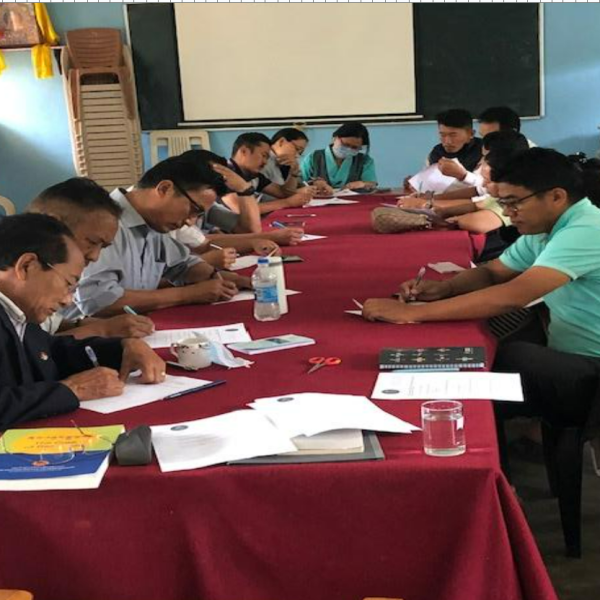TEAM-A has been conceived, developed, and launched by a group of dedicated Tibetan educators and other enthusiasts who all share a profound passion for improving the professional growth of Tibetan teachers. Their unwavering determination drives them to support and enrich the learning environment in Tibetan classrooms, ultimately leading to improved student achievement outcomes. The belief underpinning this initiative is that the key to unlocking the secrets of effective teaching lies within teachers themselves. They are, without a doubt, the richest and most valuable source of pedagogical knowledge, offering evidence-based solutions to the complex challenges faced in the teaching-learning process. Consequently, TEAM-A exists to provide teachers with the essential support and resources needed as they embark on their journey to develop research skills for identifying instructional issues and seeking practical solutions.
To this end, in April 2023, we initiated a pilot project involving two cohort teachers—one serving TCV Tibetan schools in South India and the other in TCV schools in Northern India. A total of 32 teachers, boasting an average of 18 years of teaching experience and strong educational backgrounds, actively participated in the project. The group was well-balanced in terms of gender representation, comprising 18 male and 14 female teachers. Furthermore, this diverse group included teachers with 15 holding master’s degrees, 8 with bachelor’s degrees, 8 having completed early childhood teacher training, while one participant did not specify their academic background. In essence, this group was a testament to a robust academic foundation dedicated to serving Tibetan children in exile.
The survey was administered to each group at their school site, conducted in a room selected by the school, where the subsequent focus group discussions also took place. The teachers approached the survey with a great deal of seriousness, investing significant time in responding to each survey item. The discussions that followed were characterized by their fluidity, openness, and laser-focused attention to the task at hand.
A striking majority of the participants articulated a pressing need for classroom-based and teacher-friendly professional development, as opposed to a top-down approach. They had previously attended workshops on action research but found them lacking in relevance and applicability to their own classroom settings. The TEAM-A approach to Action Research professional development was met with wholehearted enthusiasm and approval by every participant. The active involvement of teachers in the development of modules was particularly well-received. The prospect of sharing these modules among teachers, and even potentially with teachers in the United States, was an innovative and exciting proposition for them.
In summary, the TEAM-A project holds profound relevance and possesses the capability to contribute significantly to the meaningful and authentic professional development of teachers. Furthermore, a fortuitous encounter with two principals from Ladakh government schools, en route to a conference in the United States, resulted in their expressing keen interest in our professional development modules. This demonstrates the project’s potential for broader impact and recognition.



